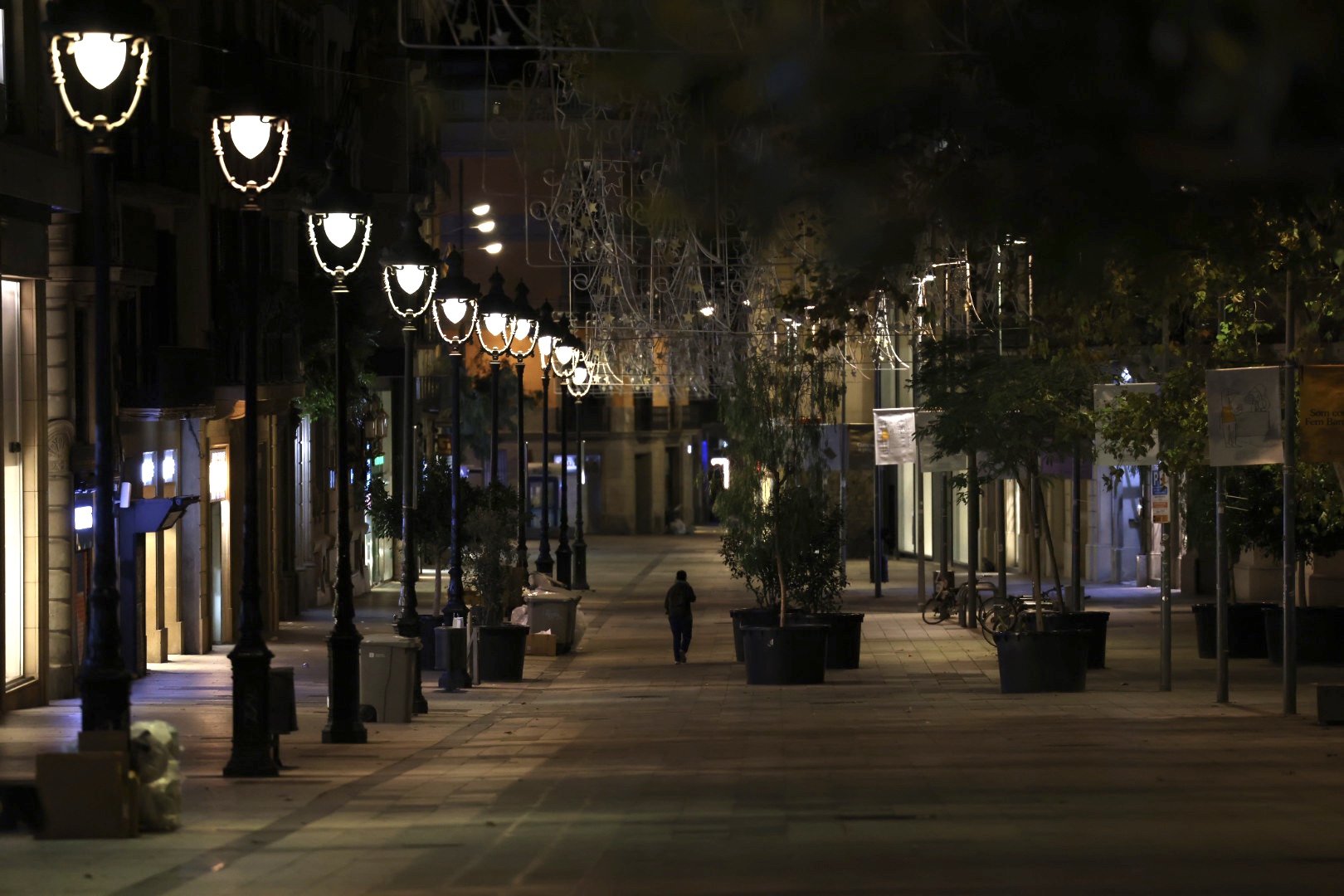Like the worst sort of summer wildfire, the pandemic has flared up again. And this is already the fifth time in 16 long months. To try to control it, the Catalan government has finally opted for a forceful solution: a return to curfew in Barcelona city and 160 other municipalities. Forty-eight hours after announcing that it would begin with lower-impact restrictions, president Pere Aragonès has announced a tougher approach, following the model chosen by the Valencian government. This Wednesday evening, the request has been transferred to the Catalan High Court to allow the government to reimpose night-time confinement, between 1am and 6am every night, in Catalan municipalities where the incidence of Covid-19 is most serious. The 161 municipalities affected are towns with more than 5,000 inhabitants and with a seven-day incidence rate of 400 cases or more, plus a few other municipalities bordering these affected towns which are effectively surrounded by areas of risk. The intention is for the measure to come into force this weekend and it would initially be for seven days, but extendable.
A full searchable list of municipalities is below:
Meanwhile, the 12:30am closedown of all night-time activity and limitation of gatherings to a maximum of ten people have been approved judicially and will come into force this Thursday night.
Control and fines
According to the Catalan presidency, compliance with the curfew will be enforced through the Mossos d'Esquadra police in collaboration with local police, but they again appeal to the "essential" responsibility from the public. The penalties for those who fail to comply will be the same as during the state of alarm and will range from 300 to 6,000 euros. The exceptions are the same: emergencies, work or essential services.
Even if a municipality improves its situation and leaves the risk zone, it will have to wait for the resolution to end, and will not be able to automatically lift its own curfew. Similarly, any territory that is currently not on the list but whose data worsens, will not enter until the next review. However, the initial list of 158 municipalities announced on Wednesday night was subsequently extended to 161 with the addition of Altafulla, Santa Cristina d'Aro and Caldes d'Estrac, before being submitted to the court.
The Valencian precedent
Without the special emergency status of Spain's state of alarm - which ended on May 9th - there is no room to decree a general and homogeneous curfew across the state. Thus, in this fifth Covid wave, each Spanish autonomous community has to decide how to proceed, always with the condition of having to apply for permission from justice in relation to measures that affect fundamental rights. In order to obtain the endorsement of the High Court of Catalonia (TSJC), the request must be well-founded, to convince the judges that it is proportionate and provides more benefits for the general interest than harm to the public. Among the arguments put forward will be the situation of maximum stress in Catalonia's primary care centres (CAPs) as well as data on the evolution of the pandemic by municipalities. So far, across the Spanish state, curfews have been called for in the Valencian Country - for which the justice system has already given a green light - Cantabria - which is waiting the judges' decision - and the Canary Islands - where the court has rejected the measure.
Outbreak risk (EPG) index by muncipalities in Catalonia
First restrictions, to start from Thursday
The Catalan government has already obtained the approval of the judiciary to implement the restrictions it proposed on Monday. Specifically, the limitation of gatherings size to only 10 people, and the requirement for all leisure, entertainment, sports and commercial activities to end at 12:30am nightly and, at that time, for public spaces such as parks and beaches to be closed to avoid congestion. Plus, a ban on eating and drinking on the street. These obligations will take effect on Thursday as soon they are published in the Catalan government gazette.
In the main image, empty Barcelona streets during the night-time curfew in force during the state of alarm. / S. Alcazar

